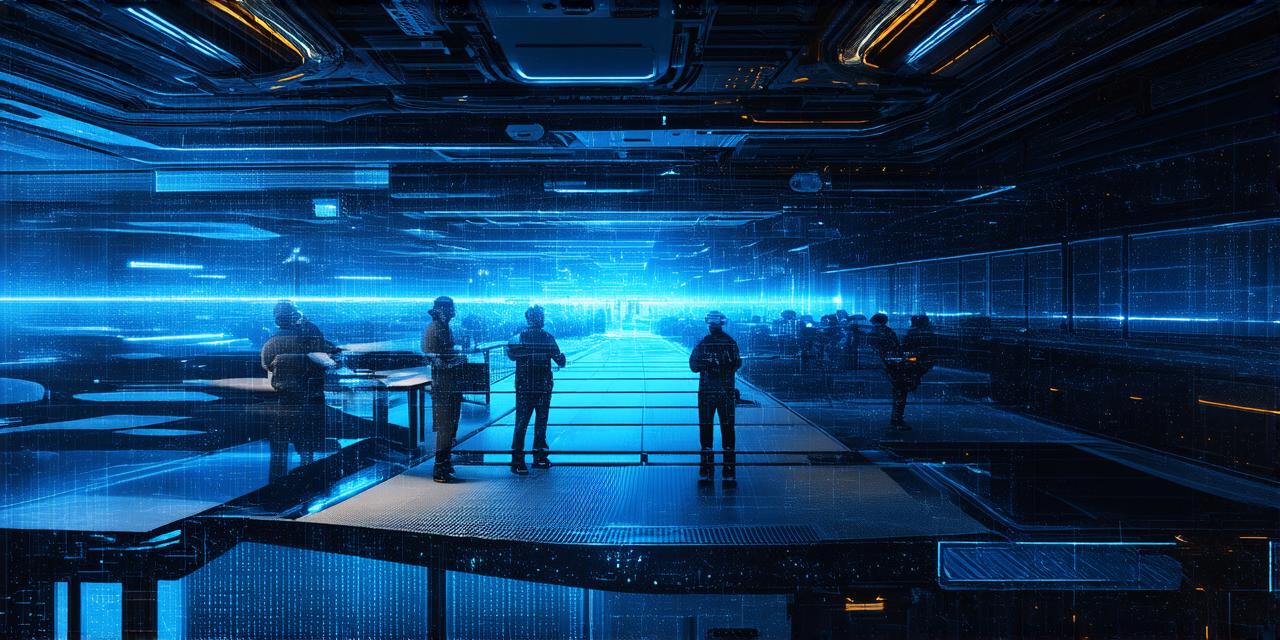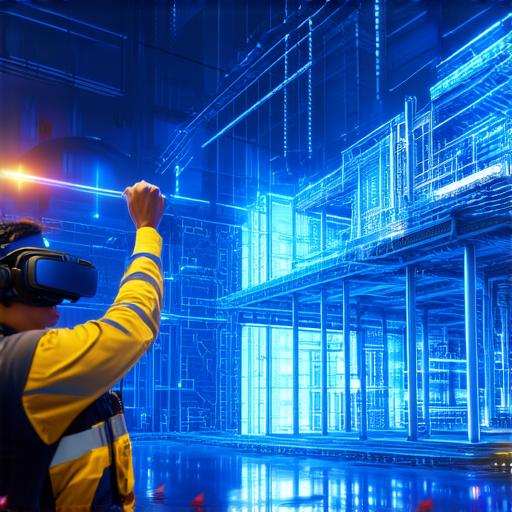
How can the construction industry make use of virtual reality?
Virtual Reality (VR) is transforming the construction industry by providing new and innovative solutions to some of the most pressing challenges faced by professionals working in this field. From improved project management to enhanced safety and customer experience, VR has the potential to revolutionize the way construction projects are planned, executed, and managed.
1. Improved Project Management:
Virtual reality allows construction professionals to visualize and interact with their projects in real-time, making it easier to manage them efficiently. With VR, architects, engineers, and builders can explore different design options, identify potential issues, and make informed decisions. This results in faster project delivery times, reduced costs, and improved quality control. For example, Skanska, a global construction company, developed a virtual reality training program that simulates real-world job site scenarios. The program enables workers to practice their skills in a safe and controlled environment, reducing the risk of accidents and injuries on job sites.
2. Enhanced Collaboration and Communication:
Virtual reality enables construction teams to collaborate and communicate more effectively, regardless of their location. They can use VR tools to share information, visualize plans, and discuss ideas in real-time, reducing the need for physical meetings and improving accuracy. This enhances teamwork, reduces errors, and leads to better outcomes. For instance, Bechtel, another global construction company, developed a virtual reality design tool that enables architects and engineers to visualize and interact with their designs in real-time. The tool has been used on several large-scale projects, enabling teams to identify potential issues early on and make informed decisions quickly.
3. Increased Safety:
Virtual reality can simulate dangerous or hazardous working conditions, allowing construction workers to practice their skills and identify potential risks before they are actually exposed to them. This can significantly reduce the risk of accidents and injuries on job sites, leading to a safer work environment. For example, VR simulations can be used to train workers on how to handle heavy machinery, work at heights, or navigate dangerous areas of a construction site.
4. Cost Savings:
Virtual reality technology can help construction companies optimize their operations and reduce costs. By using VR simulations, teams can identify inefficiencies, improve resource allocation, and reduce waste. This results in cost savings, improved project profitability, and increased competitiveness in the market. For instance, VR tools can be used to simulate different materials, designs, and construction techniques, allowing architects and builders to make more informed decisions about which options are most cost-effective.
5. Better Customer Experience:

Virtual reality allows construction companies to provide a more immersive and engaging experience for their customers. By using VR tools, architects and builders can create virtual walkthroughs of their projects, allowing clients to see and interact with their designs in real-time. This enhances customer satisfaction, increases the likelihood of repeat business, and improves brand reputation. For example, some home builders have started using VR technology to showcase their properties to potential buyers. Customers can explore the properties virtually, view different layouts and furniture options, and make informed decisions about which property best suits their needs.
In conclusion, virtual reality is transforming the construction industry by providing new and innovative solutions to some of the most pressing challenges faced by professionals working in this field. As technology continues to evolve, we can expect VR to become an increasingly important tool in the construction sector. By adopting VR technologies, construction companies can stay ahead of the curve and remain competitive in a rapidly changing market. From improved project management to enhanced safety and customer experience, VR has the potential to revolutionize the way construction projects are planned, executed, and managed.


